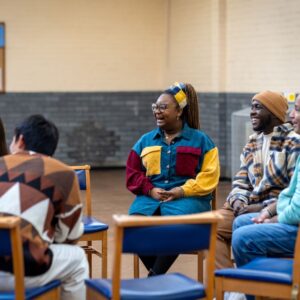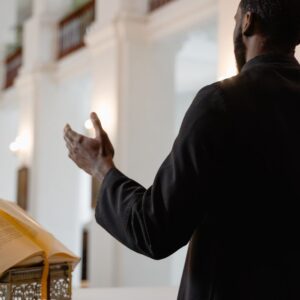This article is part three of a three-part series covering the three components that we, The Center for Transforming Engagement, have identified that help people to remain resiliently flexible. (you can find parts two and three by clicking the links below)
1. Peers who offer a community of support;
2. Practices that contribute to health of body, mind, and spirit
3. Purpose in our work that meets meaning in our life’s
narrative.
It may go without saying that purpose is complex.
It’s layered in its living, it’s full of mysticism in its call, and most of us experience it with so much uncertainty in our daily walk.
Even if we cognitively “know better,” it’s easy to fall into the traps of how we think purpose should work, especially in Christian fields of work or cultural contexts.
We believe, on an emotional and embodied level, that purpose should be clear, singular, and divine.
These beliefs are affirmed through spirituality and scriptural reads.
I’m not jealous of Moses’s task, but I am jealous of his encounter with a talking flaming shrub that told him exactly what that task was, with some advice on how to accomplish it.
Our beliefs about purpose are also affirmed through culture.
This is perhaps clearest in biographies; I went through a biography kick when I was in elementary school, unfortunate timing for being such a formative period of building a view of purpose combined with narratives written for third-grade reading comprehension. The stories are simplified, linear versions of how a life works.
Even in biographies that attempt to address such complexity, it’s challenging to fully take in the reality of what someone was living through because we see it through the lens of their impact. I was recently reading Becoming by Michelle Obama in which she tries to convey the uncertainty, challenges, and risks of the major life choices she made. Still, I was aware of how much my own thoughts got in the way: she must have known she was marrying a man who would have a global impact, that she would become a widely influential First Lady in both politics and culture, leading multiple initiatives. Even as I read about her doubts around working for city hall, I was reading it with the irony of who she becomes later in life. When the outcome of the story is known, it’s almost impossible to fully take in the challenges of unknowing, of trying to find a way forward when the path isn’t clear.
In conversations, it’s easy to fall into the same trap.
As we listen to the stories of mentors and professionals in our field, it’s easy to hear the stories of how they came to their work, how they found meaning in their life, how they live into their purpose each day, all told rather linearly. In the narration, it can seem as though they always had clarity, as though they always had a singular thread of a theme running through their interests and opportunities—or at most, a few threads that readily braided together.
What we forget is that these stories are told in hindsight, from the perspective of seeing which interests and opportunities were most significant, after years of rehearsal of that story in everything from deep conversations with close friends to small talk at professional events and cocktail parties. And we forget that language is linear in a way that embodied life is not.
Living in Purpose
As I’ve worked with the team of Resilient Leaders Project to build a process for ministry leaders to articulate and live into their purpose, we’ve come to realize that, in order for someone to be resilient in their work, Purpose must contain three components. Because his work Man’s Search for Meaning has been so formative, I’ll illustrate with Victor Frankl’s life for each.
First is the overarching purpose of a life.
The impact that a person has on the world over the course of a career, the outcome that we pursue with hope to see some increment of change in our lifetime and greater hope that the trajectory of that work will continue when we return to the earth. A calling. A vocation. This seems to be what people are most interested in discerning, the type of purpose in which people most often pursue clarity. For Frankl, who was trained as a psychologist before placement in German concentration camps, he knew his long-term purpose as a teacher of psychology. He imagined a future self and the impact he would someday have.
Second is the daily, mundane activities that help us cope with a single day.
Though they don’t directly contribute to overarching purpose, they contribute by keeping us going. They’re necessary in that they make the pursuit of long-term purpose tolerable by giving moments of joy, delight, comfort, or relief. Frankl shares stories of imagined conversations with his wife, observing a beautiful sunset, or remembering details of his house and life before the war. Without these moments, he knows that he would have given up the will to live.
Finally, purpose must include meaning-making.
Taking the raw material of suffering, pain, and mistakes and finding the formative opportunities within those moments. It takes a strong faith and hope to trust that suffering will shape us, that what feels like failure is formation for wholeness, that pain has purpose. It takes an active prayer life to be in the midst of heartache or health crisis and ask God, “What are you doing with me, at this moment?” In Frankl’s extreme suffering, he knew he would redeem it by learning about the psychology of it and teaching others.
Interested in exploring purpose?
Resilience circles offer a unique, transformative journey of personal growth, connection, and resilience. Go here to get more information on resilience circles.
You can also download The Center’s valuable resource: The Resilience Report to explore more about the three components of resiliency.










0 Comments